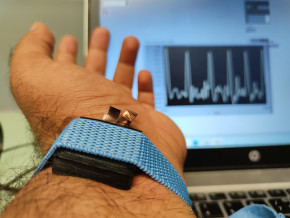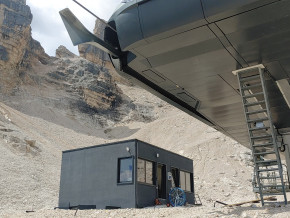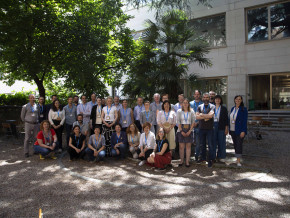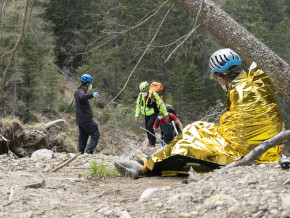Time to reboot: technology won’t save us
We live in a technological world. Technology is everywhere around us, it helps us with our daily chores, enables us to communicate with friends all over the world, has allowed many of us to work in the Covid-19 lockdown, brings food to our tables while keeping it fresh, produces clean energy for our homes and transportation, and, finally, lets us have fun.
But technological advancement has also created problems for planet Earth and all its inhabitants, not just us humans. In combination with human ingenuity and an economic system that emphasises greed, we now face planetary emergencies, such as climate change, biodiversity loss and environmental pollution, where oceans of plastic and smog filled cities are prevailing features of daily existence.
Technology is also indirectly responsible for the current Covid-19 pandemic. The green revolution in agriculture (breeding, fertilisation, mechanisation) produced more food than was needed, which meant in part, the population was able to increase from 3 billion in the 1960s to 7.8 billion as of 2020. More people need more room to live and work, so humans had to expand into more areas, which in turn left less space for wildlife, and thus made it much more likely to contract viruses from bats. Human mobility, especially massive air traffic, created a global pandemic out of a local infection in a just a few months.
So, if technology is causing problems, can it also cure them?
Many believe so. Governments and research funding agencies have been putting more money into technological advancement and natural sciences than into culture and humanities. For example, in the EU’s flagship research funding program H2020, only 7% of the funds went to social sciences and humanities. For Covid-19, this means investing in technological solutions like tracking apps and the rapid creation of a vaccine. Investment in other planetary issues such as CO2 neutral energy, precision agriculture and the internet of things has also until now been at the receiving end of hefty funding.
But the most effective weapon against Covid-19 is a humane one: care, respect, humility – aka social distancing. For the other problems, behavioural change would also be one of the fastest response options and in the majority of cases the most necessary. Think of the plastic problem: one could wait for robots to be invented that fish the plastic from the oceans – or one could just stop throwing plastic away.
Criticising technological advancement is nothing new here and has been addressed in popular movies since the early 20th century in Charlie Chaplin’s Modern Times, or in the middle of the 20th century by Heinz Erhardt’s Der letzte Fußgänger and Louis de Funès’ L’aile ou la cuisse. The tech-savvy frown upon criticists, implying they are overburdened with the fast pace of change, and want to go back to the good old days, when life was simple and easy. But let’s be honest, life has never been easy. Each period in history has had and will have its own challenges, and it’s always easy to reminisce afterwards, after the lessons have been learnt and the hard times are behind us. The point I’m trying to make here is, we should not try to live in the past, but rather imagine the future in order to shape the present.
What if instead of relying on technology to save us, we adopted a new renaissance? Enlarged the humanistic faculties which write history, discuss the past, help to cope with the present, and work out the human implications of recent changes. Cultivate the arts, music and theatre, which reflect on the current developments albeit often critically, inspire the audience to think, and connect human beings across beliefs and origins. More value would be put on thought instead of on stuff, on reflecting instead of mindless action. As a by-product, consciousness would be increased, less CO2 produced, and the environment more cared for.
The Renaissance, which began in 14th century Italy, was a period of great societal change. Its basis was humanism, which manifested itself in all areas of life, from art and architecture to science and literature. It was preceded by a global pandemic, the Great Bubonic Plague or Black Death, whose origin was bacteria of animal origin. The infection lead to pneumonic plague, which then could also be spread for person-to-person via aerosols. It is theorised that the devastation caused by the pandemic caused the shift in world view that finally led to the Renaissance.
Many people feel more at home in the creative side of life, but since creativity is generally not equated with being able to pay for our daily bread, parents tend to discourage their children from pursuing such careers and instead steer their offspring to more solid jobs . But this doesn’t make the people happier, nor does it help the planet. An analysis of the number of graduate students in OECD countries from 1998 to 2012 shows that, while the total number of graduates has increased from 5.1 to 8.4 million signifying a 65% increase, the relative share of arts and humanities graduates decreased from 13.6% to 12.1%. Around the years 2007-2008, many countries show a net decrease or a slowing down in the upwards trend of the number of arts and humanities graduates – these are the years of the global financial crisis. Finally, these numbers are from developed countries, some of which with a long humanistic tradition. The picture might look even bleaker in the rest of the world.
In these times, where Covid-19 has shown us how fragile life is, we desperately need more of the human side in order to face the transitions confronting us: the energy systems which threaten our climate, the economic system, which is destroying our planet and disregarding human values, or our school system, which puts too much focus on producing an obedient work force. However, the Covid-19 lockdowns have also showed us how massive changes in human behaviour are possible within the shortest of periods, and that people are now beginning to understand the necessity of this change and follow through with it. So, change is possible; which direction will it go in?
Believe me, whatever the problem is
Technology can fix it
Technology will outlive us all!
Bonaparte, Technologiya from the album My Horse Likes You
Michael Matiu - This article has already been published on the blog Covid-19 And Beyond
Related Articles

Tecno-prodotti. Creati nuovi sensori triboelettrici nel laboratorio di sensoristica al NOI Techpark
I wearable sono dispositivi ormai imprescindibili nel settore sanitario e sportivo: un mercato in crescita a livello globale che ha bisogno di fonti di energia alternative e sensori affidabili, economici e sostenibili. Il laboratorio Sensing Technologies Lab della Libera Università di Bolzano (unibz) al Parco Tecnologico NOI Techpark ha realizzato un prototipo di dispositivo indossabile autoalimentato che soddisfa tutti questi requisiti. Un progetto nato grazie alla collaborazione con il Center for Sensing Solutions di Eurac Research e l’Advanced Technology Institute dell’Università del Surrey.

unibz forscht an technologischen Lösungen zur Erhaltung des Permafrostes in den Dolomiten
Wie kann brüchig gewordener Boden in den Dolomiten gekühlt und damit gesichert werden? Am Samstag, den 9. September fand in Cortina d'Ampezzo an der Bergstation der Sesselbahn Pian Ra Valles Bus Tofana die Präsentation des Projekts „Rescue Permafrost " statt. Ein Projekt, das in Zusammenarbeit mit Fachleuten für nachhaltiges Design, darunter einem Forschungsteam für Umweltphysik der unibz, entwickelt wurde. Das gemeinsame Ziel: das gefährliche Auftauen des Permafrosts zu verhindern, ein Phänomen, das aufgrund des globalen Klimawandels immer öfter auftritt. Die Freie Universität Bozen hat nun im Rahmen des Forschungsprojekts eine erste dynamische Analyse der Auswirkungen einer technologischen Lösung zur Kühlung der Bodentemperatur durchgeführt.

Gesunde Böden dank Partizipation der Bevölkerung: unibz koordiniert Citizen-Science-Projekt ECHO
Die Citizen-Science-Initiative „ECHO - Engaging Citizens in soil science: the road to Healthier Soils" zielt darauf ab, das Wissen und das Bewusstsein der EU-Bürger:innen für die Bodengesundheit über deren aktive Einbeziehung in das Projekt zu verbessern. Mit 16 Teilnehmern aus ganz Europa - 10 führenden Universitäten und Forschungszentren, 4 KMU und 2 Stiftungen - wird ECHO 16.500 Standorte in verschiedenen klimatischen und biogeografischen Regionen bewerten, um seine ehrgeizigen Ziele zu erreichen.

Erstversorgung: Drohnen machen den Unterschied
Die Ergebnisse einer Studie von Eurac Research und der Bergrettung Südtirol liegen vor.
